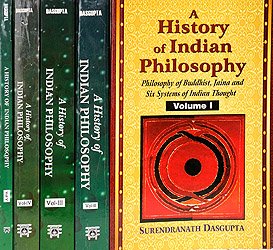A History of Indian Philosophy Volume 1
by Surendranath Dasgupta | 1922 | 212,082 words | ISBN-13: 9788120804081
This page describes the philosophy of classification of the vedic literature: a concept having historical value dating from ancient India. This is the third part in the series called the “the vedas, brahmanas and their philosophy”, originally composed by Surendranath Dasgupta in the early 20th century.
Part 3 - Classification of the Vedic literature
A beginner who is introduced for the first time to the study of later Sanskrit literature is likely to appear somewhat confused when he meets with authoritative texts of diverse purport and subjects having the same generic name “Veda” or “Sruti” (from śru to hear) ; for Veda in its wider sense is not the name of any particular book, but of the literature of a particular epoch extending over a long period, say two thousand years or so. As this literature represents the total achievements of the Indian people in different directions for such a long period, it must of necessity be of a diversified character. If we roughly classify this huge literature from the points of view of age, language, and subject matter, we can point out four different types, namely the Samhitā or collection of verses {sam together, hita put), Brāhmaṇas, Āraṇyakas (“forest treatises”) and the Upanisads. All these literatures, both prose and verse, were looked upon as so holy that in early times it was thought almost a sacrilege to write them; they were therefore learnt by heart by the Brahmins from the mouth of their preceptors and were hence called śruti (literally anything heard)[1].
Footnotes and references:
[1]:
Pāṇini, III. iii. 94.
